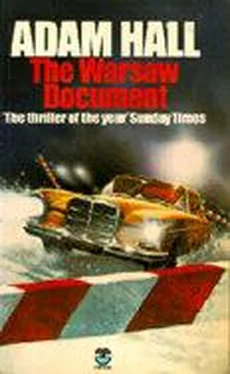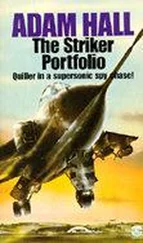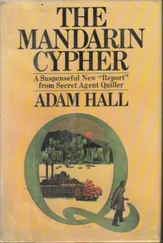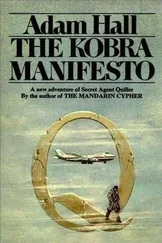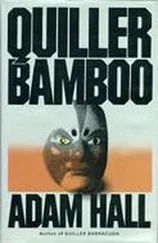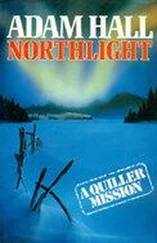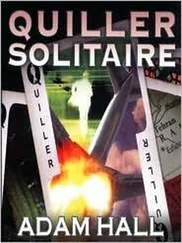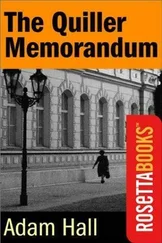Four of them had moved, pacing along the two flanks, turning when I turned, going back. The express for Rzeszbw was scheduled at № 5 ticket-gate: 12:45. People were moving up. Visual cover story for the tags was that I was here to meet someone and they'd be coming in from Bydgoszcz in the north-west.
It was important to show that I was here to meet a train and not to catch one and this was made easier because Foster had sent his reply in Russian, not English. He'd accept that any agent sent to this side of the Curtain would understand Russian and he'd used it for two reasons: to save time by using normal speech instead of having to spell out, and to let his operator commit the situation to memory as he wrote it down in his own language. The operator thus knew that I was to be immobilised in approximately three and a half hours and would assume I was agreeable to this:
'Good of you' and 'We'll have to meet' were phrases indicating a certain amount of accord between Foster and me. I therefore wouldn't be expected to leave Warsaw on a train with a first stop two hundred and fifty kilometres away. Also it had been seen that I hadn't bought a ticket, though there'd been plenty of time.
Paradox: the barrier was my best exit.
The first representatives of the Bonn Government began arriving in Warsaw this morning. Among them were the protocol secretariat and the personal aides of Herr Otto Reintz, the State Secretary for Foreign Affairs (who will be leading the delegation), and Herr Siegfried Meyer, the West German Co-ordinator for the Talks. They were greeted in English on their arrival at the Polish Foreign Ministry. In a brief formal discussion they confirmed that the recognition of the Oder-Neisse frontier will be placed high on the agenda.
12:35.
Wieslaw Waniolka, the young student of the College of Fine Arts who a fortnight ago forced the pilot of an L.O.T. Antonov 24B aircraft to alter course for Vienna, has been charged on three counts of extortion, restricting personal liberty and contravening the Austrian Firearms Law.
12:36.
It has now been established that although avowed Rightist groups were responsible for inciting disorder in the city during the past month, demonstrations were mainly staged by students dissatisfied with educational conditions, which are now receiving attention with a view to revision. Calm has returned to the capital, thanks to the courageous efforts of all police departments.
12:37.
I dropped it into the litter basket by the Orbis Information kiosk and turned back to the barrier. 'Will it be on time?'
'Perhaps a few minutes late. It's the local lines that suffer most. You have your ticket?'
'No, I'm meeting a friend from Bydgoszcz.'
'Ah. He'll have had a pleasant journey; the forests very beautiful under the snow.'
The gates were double, thin wrought iron and flat topped, head high, both locked back by ball-weighted tumbling levers. He was the only official guarding them, fifty to fifty-five, twelve stone, five nine, slow moving, the muscles unused to sudden demands.
I checked my watch and paced to the centre of the hall, trebling the distance and taking an interest in the schedules board. When I turned back I saw one of them at the barrier.
What did the foreigner say to you?
He asked if the train would be late.
Which train?
The train from Bydgoszcz. His friend is coming from there.
What friend?
He didn't say.
The visual cover story had now come alive and been put into the spoken word and it was important to establish meet as distinct from catch because it would keep them on this side of the barrier.
He crossed to the man with the small head and spoke to him and resumed station. None of the others moved: there'd been no signal to move, because they believed in meet.
12:43.
'A few minutes late: say three, four. But he could be wrong: an official was moving some people away from the edge of Platform № 3 and in the far distance a whistle sounded, its thin note drifting on the wind and funneling into the arched mouth of the station. Fifteen seconds or so later I saw signal wires jerk on their pulleys.
12:44 but chronometric time was no longer useful: a train was now on its run in and it was probably the express. It was now a matter of sighting it and adapting my movements to its approach so that I would be nearing the barrier as it drew in, nearing the barrier without changing my pace. It would be perfectly normal to turn sooner, hearing the train, or to quicken my steps a little, impatient to meet my friend; but I preferred to keep the pattern unchanged because I'd now made them familiar with it.
Similarly any train would do for my purposes since what I needed were the attendant confusion. and the erection of the sliding wall: it didn't have to be the express; but the pattern had been established to focus on № 3 barrier and I didn't want to use a new one, a different one, because even the most experienced tags are human and therefore fallible, mentally predicting the actions of the target and basing their own on his. The consequent lulling effect produces a subsequent shock when the actions become inconsistent with their prediction: in the Hocherl reaction test the electro-encephalograph will shift critically when the conditioned subject sees the pointer change its motion after a mere twenty-five beats, and this is always confirmed in verbal questioning: 'I thought it moved to the left again and I saw a kind of phantom image for a fraction of a second.'
The pattern was going to be changed on the other side of the barrier and the visual + psychological shock would produce a time gain of much more than a fraction of a second. I might never need it but that kind of reasoning is sloppy and can be fatal: preparation for any important action has got to be one hundred per cent and the instructtors at Norfolk have a phrase for it 'A bull at a gate's never yet got out of the field.'
From here the snow looked grey, a mottled and slanting veil covering the mouth of the station, and through it came the outline, its size increasing, dark grey on light. Other people were moving towards the barrier, their voices rising, and I made a final turn and came back, noting the group's disposition, the narrow gap between the two men on the left and the people in the middle, the wider gap towards right centre. Distance now closing, obstacles registered: big suitcase near the women on the right, unattended baggage trolley halfway between the two men and the gates, ticket collector's stool close against barriers, all.
Train slowing, coasting to a crawl, conrods lazy, snow caked on the front of the locomotive and thick along the carriage roofs — someone moved at the edge of the vision field and I looked back at the clock and down again, porter, not one of them, not one of Foster's men. Three more paces and I stopped, filling the gap, the wider gap towards right centre, the one I would use.
Of course they might have put someone into the platform area and it was a risk but a calculated risk so discount. Discount and wait.
And don't muck it.
Wait for the first door, the first one, not till then. When it swung open I moved.
He shouted at me but that was anticipated and there was nothing he could do because he couldn't leave his post at the barrier and within the first ten seconds I was behind reliable cover as the passengers began filling the platform between the train and the ticket-gate area and then I heard him again but the nearest official was two carriages away on the forward end and by now I was walking, taking my time, keeping to cover but nearing the mid-section carriage where most of the passengers had got out.
Читать дальше
